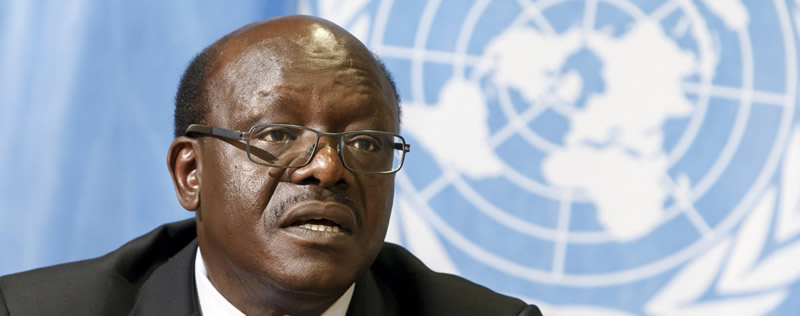Written byMukhisa Kituyi, Secretary-General of UNCTAD and UNGIS Chair 2020-21

Today’s rapid pace of digitalization is transforming our economies and societies, creating both opportunities and challenges, both hope and uncertainty. As during previous technological revolutions, it is upon governments, in collaboration with other stakeholders, to formulate and implement national and international policies that help to foster inclusive and sustainable development outcomes. In most developing countries, national efforts will need support from the international community.
Against this background, urgent attention needs to be given to bridging existing and emerging digital divides. If left unaddressed, the yawning gap between under-connected and hyper-digitalized countries will widen and exacerbate existing inequalities. The development challenges of digitalization require a coordinated multilateral response, which can also help countries build resilience and facilitate responses to other cross-cutting challenges, such as climate change and the current COVID-19 pandemic.
As the current Chair of UNGIS, I am pleased to launch this UNGIS Dialogue on the Role of Digitalization in the Decade of Action. It offers a timely opportunity for me and my peers in the United Nations System and beyond to reflect on how digitalization is affecting our efforts at accelerating the achievements of the SDGs and how we, by working better together, can enable more inclusive development outcomes.
As digital technologies are disrupting entire industries, affecting global trade, innovation and investment patterns, they play an important role in the efforts of my own organization, UNCTAD, in helping developing countries to deal with related opportunities and challenges. In this context, close collaboration with different UN agencies and other stakeholders, such as through the eTrade for all initiative, has been essential in addressing existing knowledge gaps, promoting policy dialogue and expanding our technical assistance and capacity-building work related to e-commerce and the digital economy. However, more donor support is needed for us to cope with growing demand from developing countries.
This is a special year. It signifies 75 years since the founding of the United Nations, which was designed to end war and promote peace, justice and better living for all mankind. It is also 15 years since the conclusion of the World Summit on the Information Society (WSIS). This summit raised awareness of the benefits that information and communications technologies (ICTs) can bring to humanity and the manner in which they can transform people’s lives.
The WSIS also led to establishment of the United Nations Group on the Information Society (UNGIS) as an inter-agency mechanism for advancing policy coherence and programme coordination within the United Nations on matters related to ICTs in support of internationally agreed development goals. It now comprises 30 international organizations.
With only one decade remaining for us to meet the SDGs, we can do more and better by working together. This includes making full use of existing mechanisms, such as UNGIS, to share good practices and avoiding duplication of efforts. Indeed, finding suitable policy responses requires more international collaboration, more policy dialogue and smarter partnership.
It is my hope that this online Dialogue will bring out good practices, generate new ideas and inspire the overall efforts of the United Nations to leverage digital cooperation in a manner that leaves no one behind.




